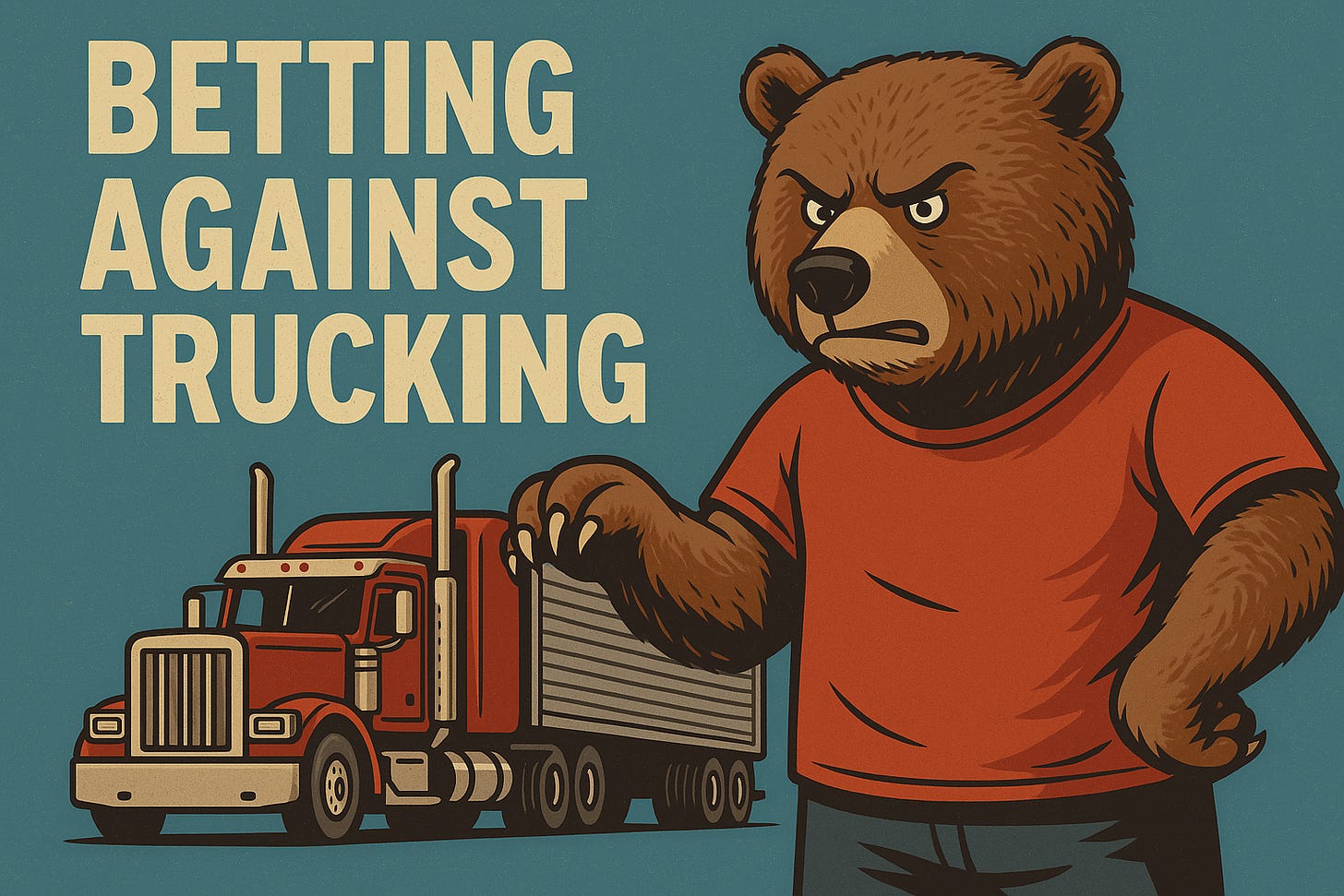Trade Alert: Trucking
Betting against two names likely to be negatively impacted by the tariff-induced drop off in imports from China.
Truck Loans Increasingly Underwater
A post shared on ZeroHedge noted that a lot of truck loans are currently underwater, likening the situation to that of mortgages in 2008 (“Running On Fumes: US Truckers Upside Down In Loans As Freight Downturn Turns Dangerous”). That situation is likely to get worse as the steep drop off in trade with China kicks in this summer.
With that in mind, we have two bearish trades today. Company A is a truck manufacturer and financer, and Company B is a transportation and logistics company serving the industry.
🐻 Bear Case for Company A
1. Truck Demand Weakens Sharply
Tariff-related slowdowns reduce industrial production and trade, leading to lower demand for heavy-duty trucks.
Order backlogs shrink and cancellations increase, especially from small and mid-sized fleets.
2. Financial Services Credit Risk Rises
Core lending customers—owner-operators and small carriers—begin to default on loans.
Resale values for repossessed trucks fall amid oversupply, forcing asset write-downs.
3. Margin Compression in Manufacturing
Fixed manufacturing costs become more burdensome as production volumes decline.
Increased discounting needed to stimulate sales, further pressuring margins.
4. Inventory Overhang & Used Truck Glut
Excess inventory builds up at dealerships and leasing partners.
Falling used truck values reduce profitability on leases and lower collateral coverage.
5. Limited Upside Catalysts
With tariffs remaining in place and trade stagnating, visibility into recovery is poor.
Investors rotate out of cyclical industrials, suppressing valuation multiples.
🐻 Bear Case for Company B
1. LTL & Truckload Volumes Fall Off
Exposure to both less-than-truckload and truckload segments makes the business highly sensitive to trade-related freight contractions.
Domestic and cross-border shipping volumes fall, reducing top-line revenue.
2. Operating Ratio Worsens
Fixed costs like terminals, leases, and labor become more difficult to offset with reduced volume.
Operating efficiency declines, squeezing margins.
3. Acquisition Synergies Fall Short
Growth through M&A slows in effectiveness as freight volumes shrink.
Synergies from recent deals take longer to realize or underdeliver.
4. Cyclical Sensitivity Exposed
Strong ties to industrial freight (e.g., auto parts, machinery, construction materials) increase vulnerability in an economic slowdown.
Lacks meaningful exposure to more resilient consumer-driven freight.
5. Earnings Misses Trigger De-rating
Declining EPS prompts analysts to revise forecasts downward.
Weak results and guidance cuts cause the stock to lose favor with institutional investors.
Our maximum risk on our bearish trades on these names is a loss of 100%, and our maximum gain on one is uncapped, and on the other is about 200%.
Details below.




